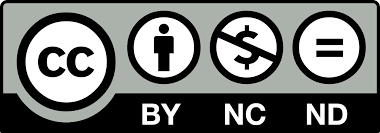Agricultural Production Volume in Poland and in Belarus and its Prospects
Andrei Hrybau
Grodno State Agrarian Universityhttps://orcid.org/0000-0001-6459-5806
Volha Hryshanava
Grodno State Agrarian Universityhttps://orcid.org/0000-0001-9767-5909
Mirosława Witkowska-Dąbrowska
Faculty of Economic Science, University of Warmia and Mazury in Olsztynhttps://orcid.org/0000-0003-1162-7362
Natalia Świdyńska
Faculty of Economic Science, University of Warmia and Mazury in Olsztynhttps://orcid.org/0000-0002-1814-6679
Abstract
The aim of this study was to identify changes in the agricultural production volume for selected branches in 2013-2017 and to estimate the future trends in Belarus and in Poland. The follow-ing comparative analyses used selected per capita intensity indices, thechange rate index and a logistic function. The study found that in both countries the greatest decrease took place in the plant production volume, while animal production volume remained more stable. The fact that its foreign trade is heavily dependent on Russia is the greatest problem for Belarus. Foreign trade in Poland is more stable and less dependent on Russia owing to the influence of the European Union.
Keywords:
agricultural production volume, trade policy, Poland, BelarusReferences
Batyk, I.M. (2014). Prospects for the development of export of Polish agri-food products to Russia. Zeszyty Naukowe Szkoły Głównej Gospodarstwa Wiejskiego w Warszawie. Problemy Rolnictwa Światowego, 14(XXIX), (3), 7-14. Retrieved from http://www.wne.sggw.pl/czasopisma/pdf/PRS_2014_T14(29)_z3.pdf (access 10.10.2019). Google Scholar
Bensowa, I., Maitah, M., Smutka, L., Tomsik, K., & Ishchukova, N. (2017). Perspectives of the Russian agricultural exports in terms of comparative advantage. Agric. Econ. – Czech, 63, 318-330. https://doi.org/10.17221/344/2015-AGRICECON. Google Scholar
Blanchard, E., & Wu, M. (2019). Externalities and Agricultural Import Bans: Evaluating Regionalization Measures in Light of the Russia – Pigs Dispute. World Trade Review, 18(2), 173-195. https://doi.org/10.1017/S1474745619000016. Google Scholar
Frumkin, B. (2008). Problemy i tendencje w rozwoju rolnictwa Rosji. In T. Czekaj, Z. Mirkowsk, J. Sobierajewska (Eds.). Dziś i jutro gospodarstw rolnych w krajach Centralnej i Wschodniej Europy. Warszawa: IRGŻ. Retrieved from https://depot.ceon.pl›handle. (access 10.10.2019). Google Scholar
Główny Urząd Statystyczny. Retrieved from https://stat.gov.pl/ (access 10.09.2019). Google Scholar
Gorzelak, E. (2013). Prawdopodobne, długookresowe tendencje rozwoju rolnictwa w Polsce do lat 2020-2030. Prace i Materiały Instytutu Rozwoju Gospodarczego SGH, 91. Badania koniunktury – zwierciadło gospodarki. Część II, 145-167. Retrieved from cejsh.icm.edu.pl (access 10.10.2019). Google Scholar
Gribov, A.V. (2018). Dywersyfikacja rynków produktów rolnych i spożywczych dla zrównoważonego rozwoju białoruskiej gospodarki (w języku rosyjskim). In Zrównoważony rozwój gospodarki: status, problemy, perspektywy. Zbiór XII Międzynarodowej Konferencji Naukowej, Pińsk, p. 27-29. Google Scholar
Grzegorek, J. (2012). Zastosowanie zaawansowanych metod statystycznych do badania rozwoju społeczeństwa informacyjnego w Polsce traktowanej jako system regionów. Warszawa: IBS PAN, (rozprawa doktorska). Google Scholar
Grzegorek, J., & Wierzbicki, A. (2009). New Statistical Approaches in the Systemic Analysis of Regional, Intra-Regional and Cross-Regional Factors of the Information Society and Economic Development; the Case of Mazovia. Mazowsze Studia Regionalne, 3, 117-128. Google Scholar
Gusakov, V.G., Shpak, A.P., Kireyenka, N.V., & Каndratsenka, S.A. (2018). Conditions and factors of implementing the doctrine for national food security in the Republic of Belarus by 2030. Proceedings of the National Academy of Sciences of Belarus-Agrarian Series, 56(3), 263-285. https://doi/org/10.29235/1817-7204-2018-56-3-263-285. Google Scholar
Inspekcja Jakości Handlowej Artykułów Rolno-Spożywczych. Retrieved from https://ijhars.gov.pl/pliki/A-pliki-z-glownegokatalogu/ethernet/2012/BWM/Porozumienie%20SPS (access 11.10.2019). Google Scholar
Instytut Sobieskiego. Retrieved from http://sobieski.org.pl/ (access 10.07.2019). Google Scholar
Kośka, M. (2016). W ostatecznym rachunku eksport do Rosji nie ma dla Polski dużego znaczenia. Obserwator Finansowy. Retrieved from www.obserwatorfinansowy.pl/tematyka/makroekonomia/w-ostatecznym-rachunku-eksport-do-rosji-niema-dla-polski-duzego-znaczenia (access 11.10.2019). Google Scholar
Kuzminov, I., Gokhberg, L., Thurner, T., & Khabirova, E. (2018). The Current State of the Russian Agricultural Sector. EuroChoices, 17(1), 52-57. https://doi.org/10.1111/1746-692X.12184. Google Scholar
Matusewicz, L. (2008). Problemy transformacji białoruskiego rolnictwa. In T. Czekaj, Z. Mirkowsk, J. Sobierajewska (Eds.). Dziś i jutro gospodarstw rolnych w krajach Centralnej i Wschodniej Europy. Warszawa: IRGŻ. Retrieved from https://depot.ceon.pl. (access 10.10.2019). Google Scholar
Matysik-Pejas, R., Szafrańska, M., & Potocka, A. (2010). State and Conditions of Polish-Russian Trade in Agri-Food Products. Zeszyty Naukowe Szkoły Głównej Gospodarstwa Wiejskiego w Warszawie. Problemy Rolnictwa Światowego, 10(25), 80-90. Retrieved from article-9e37a4a5-4da2-4d33-8891-d4e730bce53a (access 11.10.2019). Google Scholar
Statistical Yearbook of the Republic of Belarus. (2018). National Statistical Committee of the Republic of Belarus. Retrieved from https://www.google.com/search?q=Belarus+Statistical+Yearbook&client=firefox-b-d&sxsrf=ACYBGNT90zk (access 29.09.2019). Google Scholar
Peitgen, H.O., Jurgens, H., & Saute, D. (2002). Granice chaosu. Warszawa: PWN. Saihanau, A., & Kazakevich, A. (2008). Gospodarstwa rolne Białorusi: stan obecny oraz perspektywy rozwoju. Dziś i jutro gospodarstw rolnych w krajach Centralnej i Wschodniej Europy. Warszawa: IRGŻ. Retrieved from https://depot.ceon.pl (access 12.10.2019). Google Scholar
Strużak, R. (2009). Rozwój szerokopasmowego internetu w Polsce – trendy i granice wzrostu. Telekomunikacja i Techniki Informacyjne, 1-2, 38-48. Retrieved from https://www.itl.waw.pl/czasopisma/TiTI/2009/1-2/38.pdf (access 12.10.2019). Google Scholar
Swinnen, J., van Herck, K., Vranken, L. Fuglie, K.O., Wang, S.L., & Ball, V.E. (2012). Agricultural Productivity Paths in Central and Eastern European Countries and the Former Soviet Union: the Role of Reforms, Initial Conditions and Induced Technological Change. In K. Fuglie, S.L. Wang, V.E. Ball (Eds.) Productivity growth in agriculture: an international perspective. PlumX Metrics. https://doi.org/10.1079/9781845939212.0127. Google Scholar
Tereszczuk, M. (2010). Foreign trade instruments on the market in meat and products there of upon Poland’s accession to the European Union. Vědecká konference Hradecké ekonomické dny 2010 Ekonomický rozvoj a management regionů. Hradec Králové. Google Scholar
Tsutsieva, O.T., Tsallagova, L.M., & Kalakaeva, K.Z. (2019). Role of food embargo in economic growth, Social and cultural transformations in the context of modern globalism (SCTCGM 2018). European Proceedings of Social and Behavioural Sciences, 58, 2781-2787. https://doi.org/10.15405/epsbs.2019.03.02.324. Google Scholar
Faculty of Economic Science, University of Warmia and Mazury in Olsztyn
https://orcid.org/0000-0003-1162-7362
Faculty of Economic Science, University of Warmia and Mazury in Olsztyn
https://orcid.org/0000-0002-1814-6679
License
An Author declares that his paper has not been published before (under the same or another title, or is a part of another publication) and does not infringe copyrights of other persons**. At the same time, the Author transfers to the Publisher the exclusive right to publish and to circulate this work in print in the form of a non-serial journal publication and in a form of an electronic publication.
The journal is available on Creative Common license CC-BY-NC-ND






